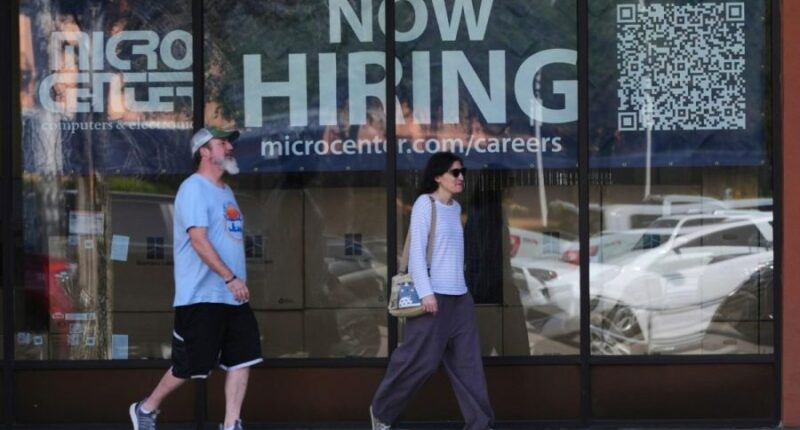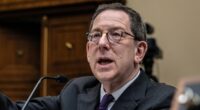Share this @internewscast.com

Layoffs spiked by almost 40 percent last month, with companies cutting 85,979 jobs—the most significant August reduction since the COVID-19 peak in 2020, based on new data.
The findings, issued Thursday by the consulting firm Challenger, Gray & Christmas, indicate that these reductions, particularly affecting the pharmaceutical, financial, and retail sectors, may be tied to some policies enacted by President Trump since he reassumed office in January.
Thus far, companies have announced 892,362 job cuts in 2025—the largest figure since 2020, when 1,963,458 layoffs were reported from January to August during the pandemic, as per the firm’s data.
Analysts noted that significant reductions within the federal workforce, due to initiatives led by the White House’s Department of Government Efficiency (DOGE), possibly influenced further corporate cutbacks. The most frequently reported reason for layoffs in 2025 has been the “DOGE actions,” according to the analysis.
“Following the federal adjustments implemented by DOGE, businesses are now pointing to economic and market conditions as reasons for job reductions,” stated Andrew Challenger, a labor specialist and senior vice president at the firm. “There has also been a notable rise in layoffs attributed to business closures and bankruptcies this year compared to the previous one.”
The pharmaceutical industry, with 19,111 layoffs, and financial sector, with 18,092 cuts, saw the biggest losses last month.
“Economic uncertainty and market volatility have increased pressure on companies in finance to tighten belts,” Challenger said.
The retail sector also has been hit hard this year, the analysts found.
In the retail sector alone, 83,656 positions have been cut this year through August—a 242 percent increase from the 24,489 cuts reported in the same timeframe last year. Challenger mentioned that Trump’s tariff policies are likely factors contributing to these layoffs and could continue impacting the job market throughout the year.
“Retailers are being hard hit by tariffs, inflation, and ongoing economic uncertainty causing bankruptcies and closures,” he said. “If tariffs and consumer spending constraints play out, the approaching holiday shopping season may see fewer seasonal hires and, in fact, high layoffs.”
Challenger also noted that seasonal hiring tends to pick up in September each year.
“Coming off the lowest August on record for hiring plans, it may be a troubling sign,” he said.











